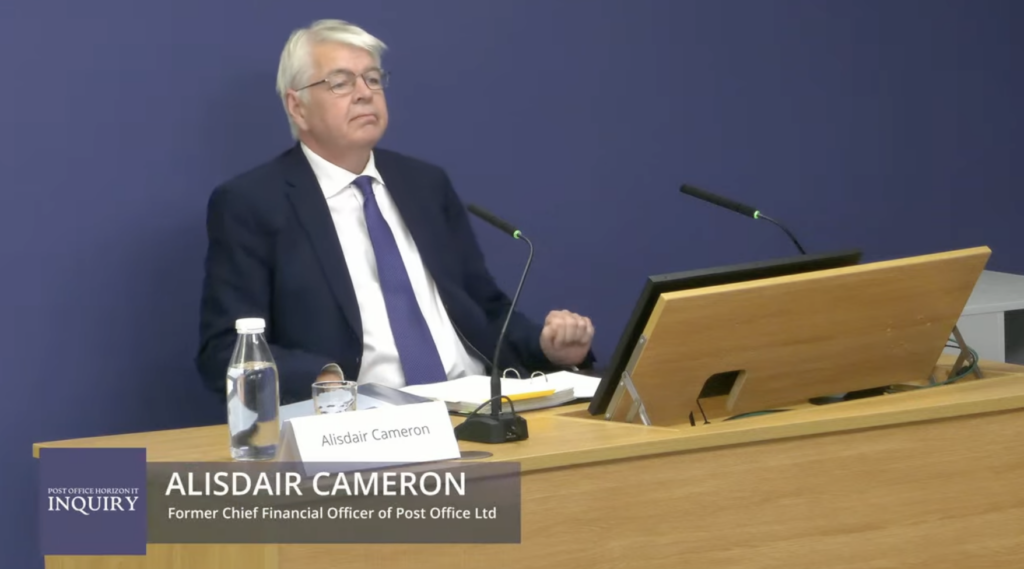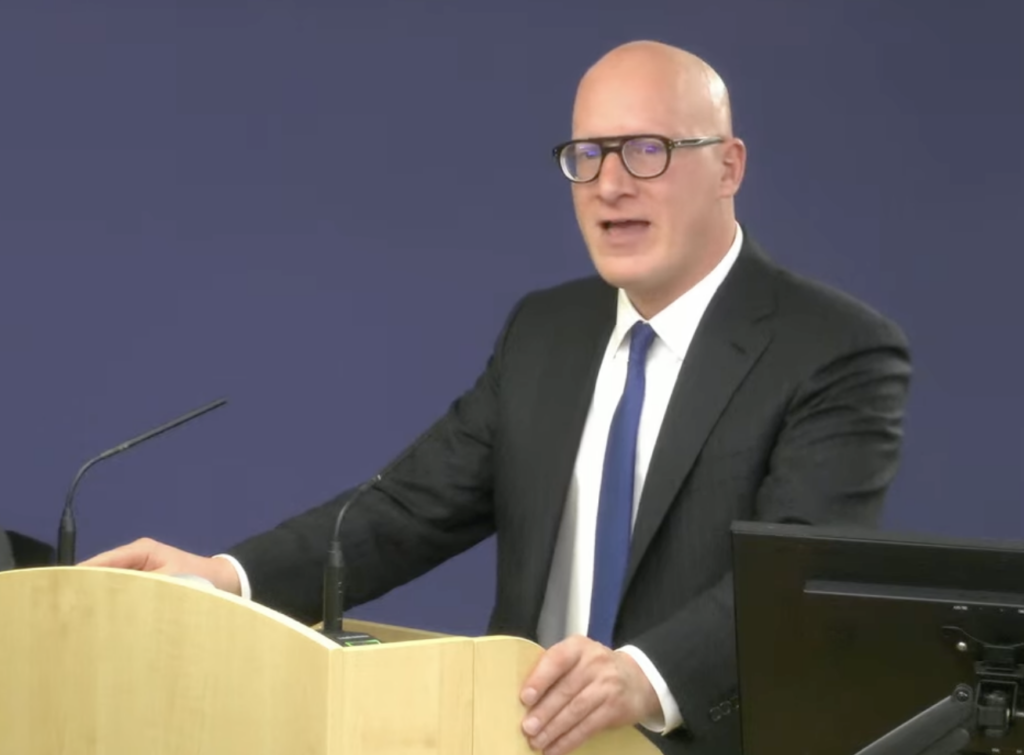
The Post Office has ceased to trade with MoneyGram, a company which Post Office customers can use to send money abroad. One Subpostmaster told me “these transactions were a pain but they were one of the very few that paid a decent remuneration.”
Writing on Monday, Ed Dutton, the Post Office’s Product Portfolio Director told Postmasters:
“Our contract with MoneyGram will expire at midnight tonight. MoneyGram services went offline globally following the serious cyber-attack that hit them on 20th September 2024. Services are still down across Post Office branches because we need to ensure that we understand the protective measures that MoneyGram have implemented following the incident. MoneyGram services also remain unavailable online in the UK. Post Office and MoneyGram have been in contract negotiations since June of this year and had expected to agree a new contract to roll-on from 1st October 2024. The contracting process was in the final stages when, unfortunately, MoneyGram suffered the cyber-attack.”
Dutton appeared to blame MoneyGram for the breakdown in their relationship:
“With MoneyGram services and communication channels severely disrupted over the last 10 days, Post Office offered to extend the current contract for a shorter period to enable us both to continue to prioritise the service renewal activity in the coming days. This short extension would have also enabled us to understand any longer-term impact of MoneyGram’s cyber incident for our customers, postmasters, and partners as this challenging situation continues.
“Unfortunately, MoneyGram has not accepted our offer, and therefore our contract with them will end today. We apologise for the short notice period on this. We are still committed to finding a way to try to continue our partnership and dialogue continues with MoneyGram. If there is any change, we will be immediately in touch. However, as it stands MoneyGram services will no longer be available via Post Office after close of business today… We appreciate how challenging news like this can be and will be working with you to try to ease any disruption this may cause.”
MoneyGram does not quite see it like that. After Dutton’s note, it wrote to Subpostmasters saying:
“We are shocked and disappointed by the message you received from the Post Office, which was both misleading and a breach of the current agreement’s confidentiality. We have always held our relationship with you in high regard as we deliver value for our shared customers. MoneyGram believes it had a binding agreement on a new 12-month extension with the Post Office. However, the Post Office leveraged our unforeseen cyber incident to materially alter the duration and terms of the agreement in a way that was detrimental to MoneyGram. Our cybersecurity experts have determined that the incident has no effect on any of our agents’ systems. We are pleased to report that we have resumed operations in every country outside of the UK and are working diligently to resume operations here. It is unfortunate the Post Office has taken this stance after our trusting partnership of over 25 years. We sincerely hope that we further the dialogue with the Post Office and can continue to work with you in the future.”
Busted flush

The cessation of what was a profitable service for Subpostmaster comes during a week in which the former Post Office Chief Financial Officer, Al Cameron told the Post Office Horizon IT Inquiry that the organisation was
“bust. It’s been bust for years. It has £700m of net liabilities and we’ve disclosed this in excruciating detail for ARA [Annual Report and Accounts] after ARA.”
Cameron also revealed that after the Bates v Post Office group litigation, he and his senior management team watched the commercial viability of the organisation “deteriorating visibly in front of us”.
Part of the reason for this was because the Post Office gave up trying to recover shortfalls from Subpostmasters and just wrote them off. Cameron told the Inquiry:
“I got very upset by the shortfall investigations, because what we were seeing was… after two months, if we thought Postmaster owed us money and the Postmaster didn’t pay it, then we wrote that off into the P&L [Profit and Loss account – ie they swallowed the loss], and so you could see the scale of that very quickly through the P&L, and it had been, I think, £2m a year when I joined, it went up to £5m a year, and suddenly it was £12m a year – it was a million pounds a month!”
Post Office investigators were meant to be properly getting to the bottom of the losses without just blaming Subpostmasters, but they evidently didn’t have the skills or the tools they needed. Cameron said he told his colleagues:
“‘Look, we’ve got to understand this. Like, by 2020, we had a lot of data on this stuff, we were helping people avoid problems. What has happened?’ And I was being told, ‘Oh, all of these have been investigated.’ And eventually I had to put – I couldn’t get sensible data out of it – so I had to put an EY [Ernst and Young] team in there, to get sensible data out of it. And it was perfectly clear that they were hardly investigating any of [the losses] and it just wasn’t a basis to be asking people for money at all.”

Cameron said it was this which eventually caused him to go off sick in 2023. In an exchange with Julian Blake, who was asking questions for the Inquiry, Cameron said:
AC: There was a lot of resentment I was asking those questions at the operations directorate so all of that was very stressful.
JB: Who was responsible for that and where was the resentment in your view?
AC: I felt a lot of resentment from Martin Roberts who was telling me I ought to mind my own business and you know I did speak to Nick about it. But I had to carry on, it was too big an issue not to. So I went on holiday in April 2023 for two weeks, and I said to my wife while we were there, I really wasn’t sure I could go back. It was just too difficult, and [my] wife was very clear it was making me ill. So I didn’t come back immediately.”
The Postmaster who told me about the MoneyGram issue said:
“I still wonder if the biggest cover up of all is a deliberate managed decline of the Post Office. Relentlessly losing contracts, unviability on new contracts, operators chucking in keys, outlets closing… if the number of outlets falls below a critical number, [we] will not have the required national coverage in order to keep or tender for contracts.”
My contact thinks this could be “the end of a national institution that is no longer needed or relevant in the modern world.”
The Post Office said:
“There are approximately 6,000 Post Office branches that previously offered MoneyGram services. There are 4,000 Post Office branches that offer Western Union services. Postmasters who previously supported both MoneyGram and Western Union, are encouraged to offer customers wishing to transfer money abroad to use Western Union at this time. We recognise that not all 6,000 Post Office branches that offered MoneyGram also have Western Union – but the vast majority had both. Other money transfer services continue to be available to customers through a range of locations. Any customer wanting to know where their nearest Post Office is located that offers Western Union are advised to visit postoffice.co.uk/branch-finder“
A Post Office insider and stout defender of its operation told me:
“Since signing the non-exclusive arrangement with Royal Mail in 2021 we’ve signed contracts with Amazon, DPD and Evri so that click-and-collect and delivery services are available in thousands of Post Offices. These are global players… and if anything are EXPANDING their services… with Evri expected to make an announcement soon about rolling their services into far more Post Offices.”
The journalism on this blog is crowdfunded. If you would like to join the “secret email” newsletter, please consider making a one-off donation. The money is used to keep the contents of this website free. You will receive irregular, but informative email updates about the Post Office Horizon IT scandal.

Leave a Reply